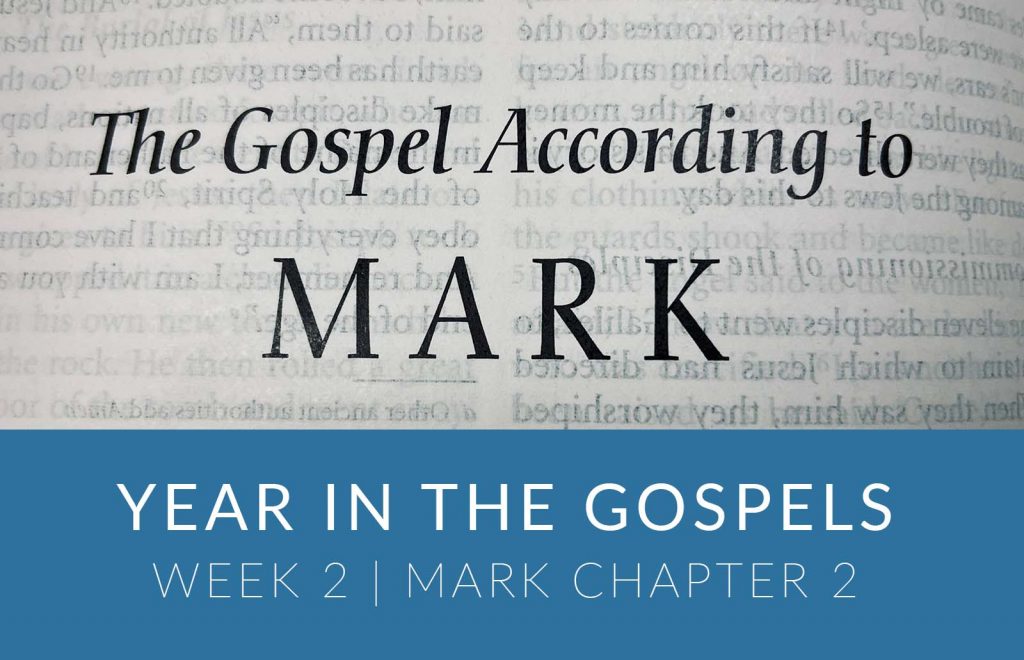This week's readings are all from Mark 2. Click here to see a list of each day's readings. Each day's segments of the readings will be posted on this site during the week. Below is the full text for today:
Today's Reading:
Now after some days, when he returned to Capernaum, the news spread that he was at home. So many gathered that there was no longer any room, not even by the door, and he preached the word to them. Some people came bringing to him a paralytic, carried by four of them. When they were not able to bring him in because of the crowd, they removed the roof above Jesus. Then, after tearing it out, they lowered the stretcher the paralytic was lying on. When Jesus saw their faith, he said to the paralytic, “Son, your sins are forgiven.” (Mark 2:1–5 NET)
The previous translation is from the NET Bible translation. Scripture quoted by permission. Quotations designated (NET) are from the NET Bible® copyright ©1996, 2019 by Biblical Studies Press, L.L.C. All rights reserved.
My Bibles commentary regarding verse Mk 2:4 pointed out that the crowd in and around the house, could represent one’s church and the sad point is that the crowd, “church” did not recognize the need to make way so the ailing man could get to Jesus…but the men who brought him to Jesus didn’t give up…they “went the extra mile” to help the sick.
What would I do if I was in the crowd? What would I do if I was in carrying the ailing man. Thoughts to ponder 🤔🤔🤔
I'm sure we will talk more about Jesus' responses tomorrow, as well, but why do you think Jesus responded with offering forgiveness to their efforts to seek physical healing?
Forgiveness and Healing
It may seem strange to us that Jesus' first response to the paralyzed man was to engage in forgiveness of sins, but, though Jesus' direct act of forgiveness is controversial to the scribes, the connection between forgiveness and healing itself would not have been strange to their culture. Here is a post offering some insight from Jewish sources regarding the connection between sickness, sin, forgiveness, and healing.
Note that the verb "to forgive" in Greek (afiēmi) means literally to "let-go,throw, hurl, cast, send forth…throw away, abandon, unburden…release." To give a sense of the meaning, here's how Mark has already used it.
Mark 1:18 And right-away they let-go of the nets and followed him.
Mark 1:20 And right-away he called them, and letting-go of/abandoning their father, Zebedee in the boat with the hired-hands they went-way behind him.
Mark 1:31 And coming he raised her up by firmly taking her hand. Then the fever let-go-of her/released her and she began to serve them.
Mark 1:34 But he would not let-go/release the demons to speak, because they knew him.
In a Jewish context regarding sin and sickness, there would be a strong lean into the sense of "release": release from debt, from sin, slavery, oppression, etc. This is probably a good approach to understanding a New Testament understanding of forgiveness. Forgiveness is release.
In the Greek of Mark 2:2, Jesus is really chatting/speaking with people in the house rather than "preaching" to them, as some translations have (including the NET). Here's a post on the details.
A better translation would be:
"...and Jesus was speaking to them the word/message" or "...and Jesus was chatting with them about the word/message."
So I am just getting to read all the discussions this AM! It made me think with the whole discussion @Jimmy and @travis were having… so when Jesus says to the paralytic “son your sins are forgiven” was he also physically healed in that moment, or that didn’t come until he told him to take up
his mat and walk? Just curious. Travis, I also liked what you thought in your head about it all…that made sense to me!
